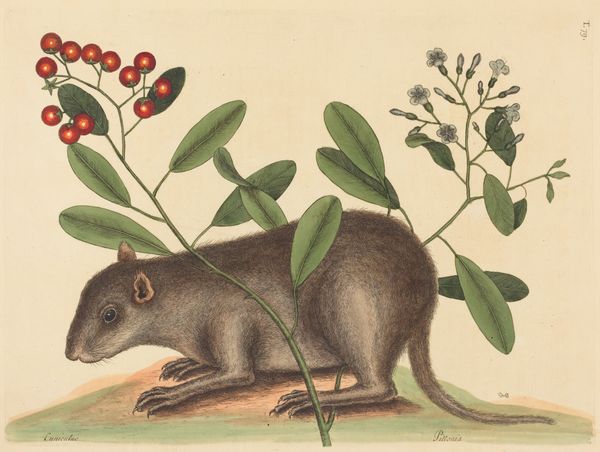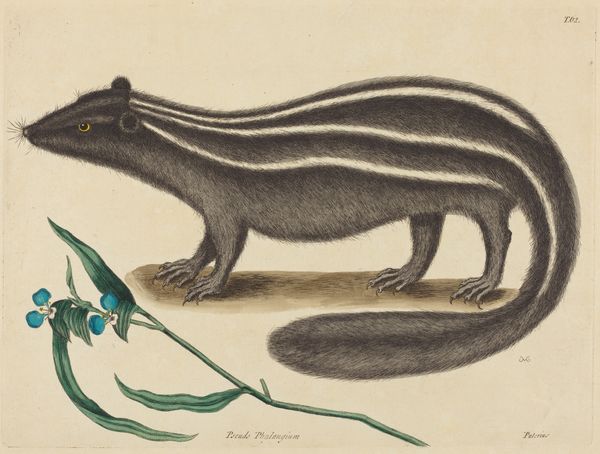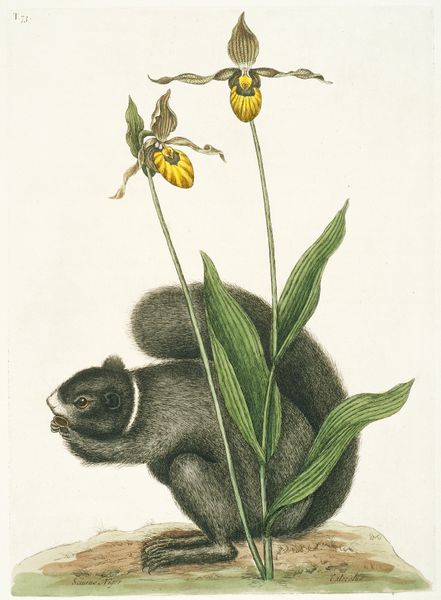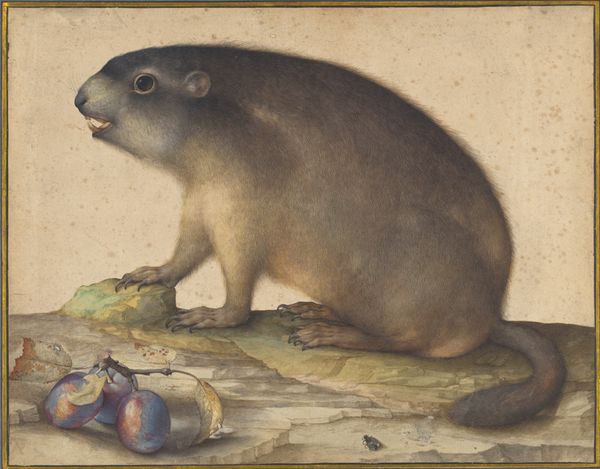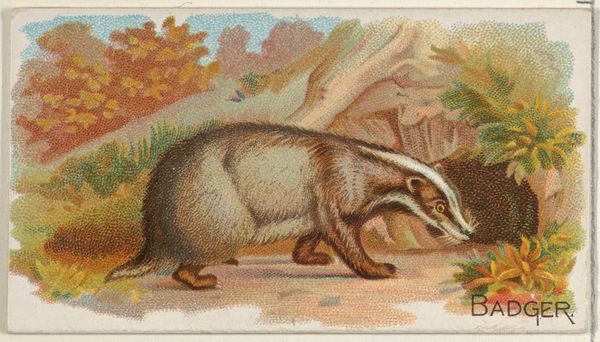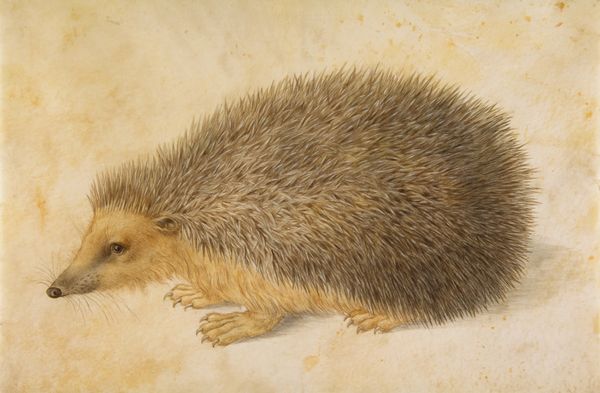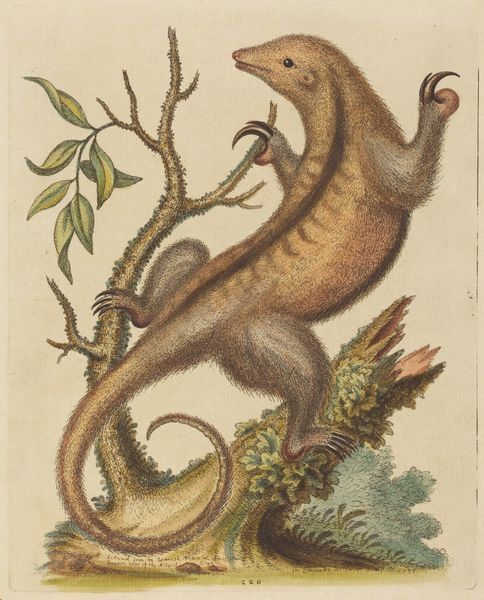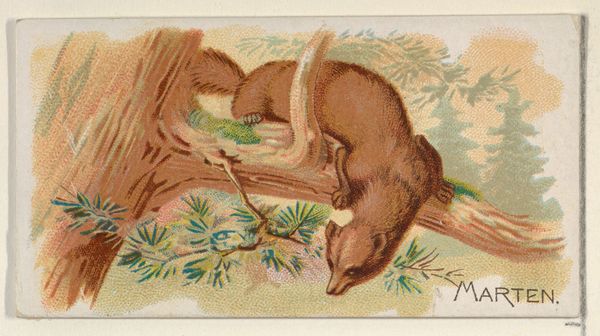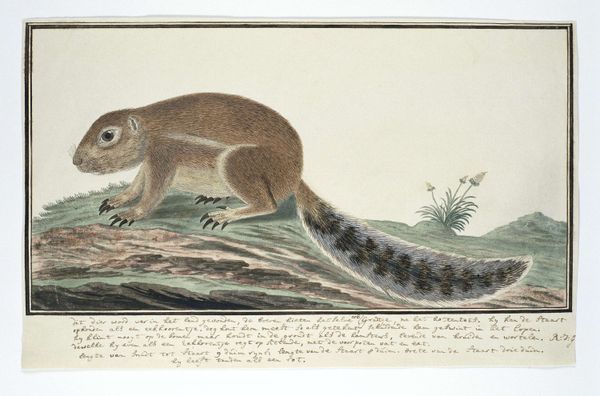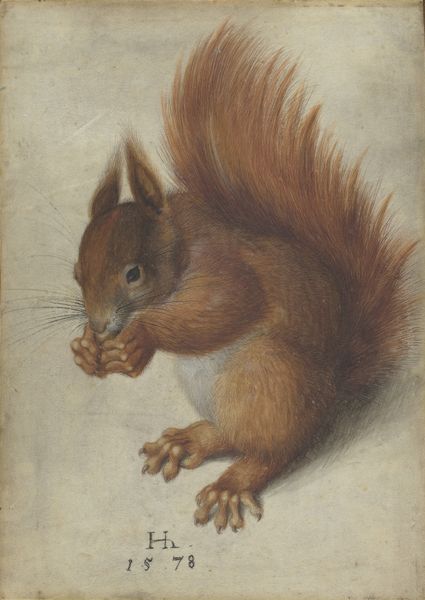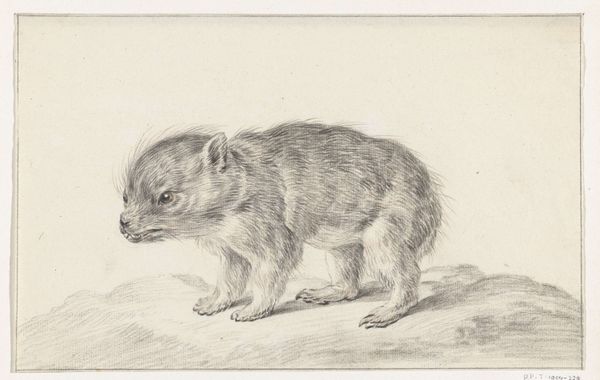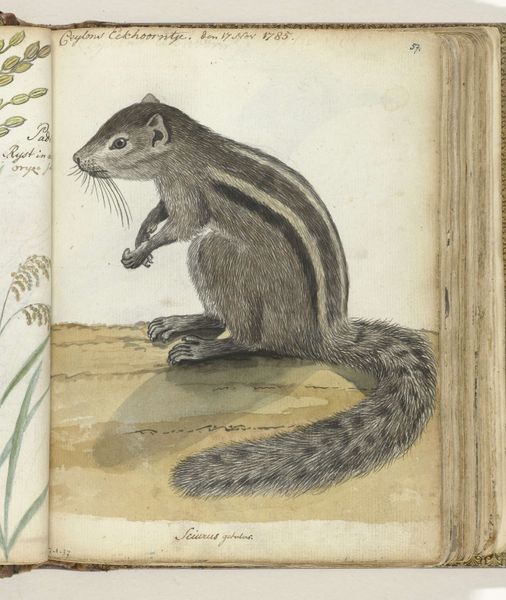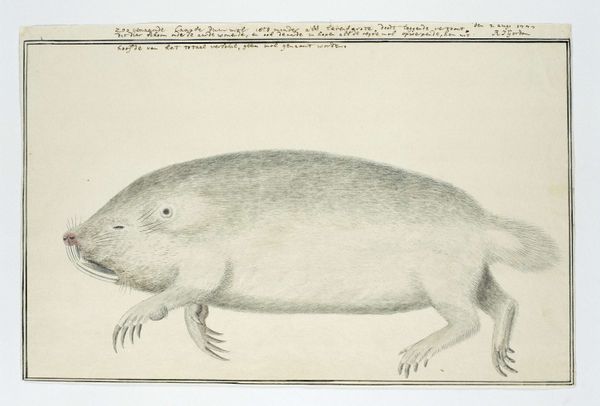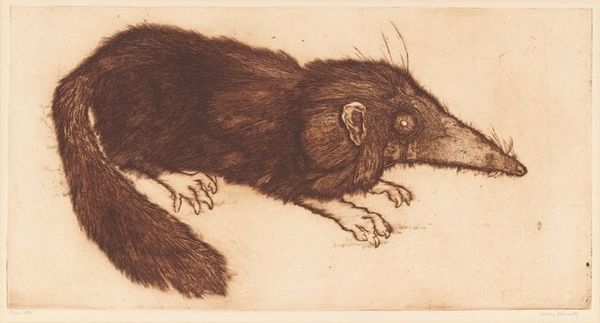
drawing, coloured-pencil, print
#
portrait
#
drawing
#
coloured-pencil
# print
#
landscape
#
coloured pencil
#
animal drawing portrait
#
watercolour illustration
#
botanical art
Copyright: National Gallery of Art: CC0 1.0
Editor: Here we have Mark Catesby’s "The Grey Fox Squirrel", a print using coloured pencil and other drawing media, likely from the 1730s or 40s. I find the combination of precise detail and slightly stiff pose so interesting. What strikes you most about this image? Curator: The focus on the squirrel itself, set against meticulously rendered flora, speaks volumes about early natural history illustration. We must ask: what materials were available, what labor was involved in sourcing those materials, and how did this affect production? The printmaking process itself facilitated the distribution of knowledge – who had access to these images, and what impact did they have on colonial perceptions of the New World's resources? Editor: So you’re focusing on how it was made and who got to see it? Curator: Exactly! Catesby wasn't just creating art; he was producing a commodity embedded in a network of scientific and economic exchange. The paper, the inks, the pigments - these materials connect to global trade routes and colonial exploitation of natural resources. How might the very act of representing this squirrel serve colonial interests? Editor: That makes me think about how the print medium democratized the image compared to a unique painting, allowing wider circulation to different social strata and thus shaping how a broader public viewed the American landscape and its fauna. Curator: Precisely. Consider how this differs from Indigenous ways of knowing and representing the natural world. Whose knowledge is privileged in this image, and at what cost? Editor: I never considered the power dynamics involved in what appears as a simple illustration of a squirrel. Thanks for illuminating the role of materiality and its social impact! Curator: Likewise. It is through the careful examination of materials and their movement, alongside a contextualized knowledge about its use, that we appreciate art's power.
Comments
No comments
Be the first to comment and join the conversation on the ultimate creative platform.
